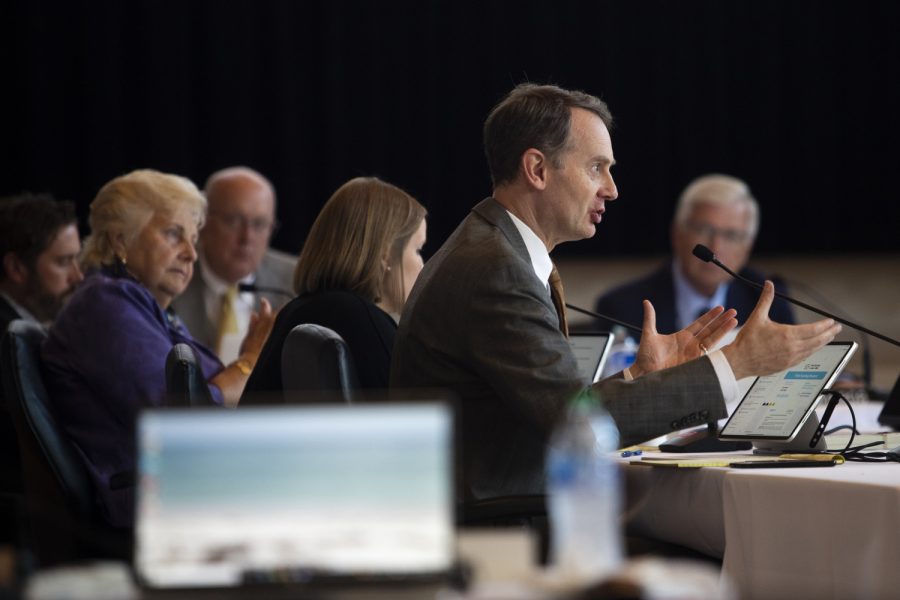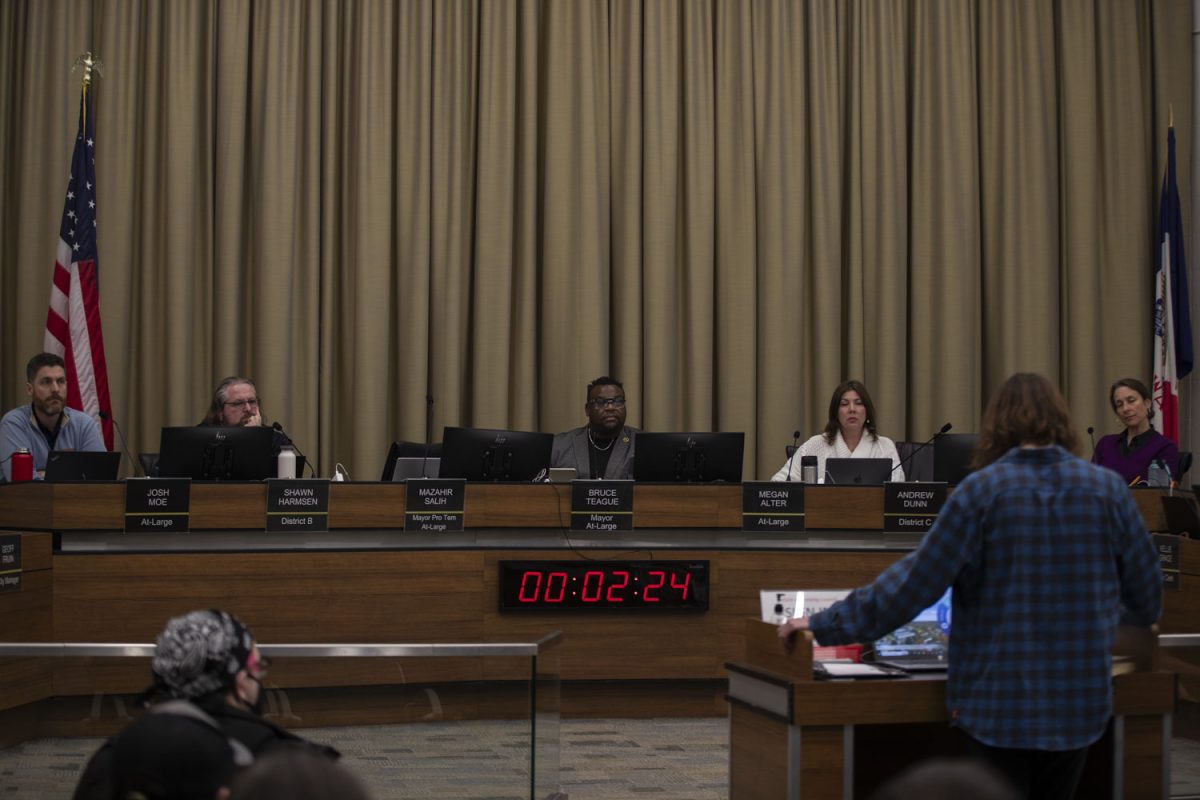Two weeks following the announcement of Johnson County Auditor Tom Slockett’s unauthorized spending of $58,000, the Johnson County Board of Supervisors discussed Thursday in an informal meeting how the county plans to move forward.
At the Oct. 18 meeting of the board, Supervisor Janelle Rettig revealed Slockett spent more than $62,000 on new technology, including 70 computers, printers, and scanners. The supervisors had previously approved the purchase of only five new computers.
Slockett purchased the equipment under the line item for election equipment and has now put that sector roughly $49,000 over budget.
The special circumstances are unprecedented — the Auditor’s Office normally handles claims but supervisors say it mishandled them in this case.
“The office holder that decided to go renegading and go on a spending spree was the same office responsible for claims,” Rettig said.
Slockett was unable to be reached for comment Thursday, but said previously that he stands behind the purchases, defending the voting equipment as necessary. He said the supervisors failed to provide the required services for voters.
“It never occurred to me to follow their lead to intentionally fail to provide the necessary services to meet the need of Johnson County voters to exercise their right to vote,” Slockett wrote previously in an email. “They clearly take the voters of Johnson County for granted, but I will not.”
The supervisors said Thursday they plan to focus on the budgets and whether changes will have to be made.
“All we can do as supervisors is to scrutinize and to try to make sure the dollars that are being spent are appropriate for that budget,” Supervisor Terrence Neuzil said. “Ultimately, the question will be will our auditor leave the office requiring a budget amendment or not.”
A budget amendment — a change in an office’s budget to allow for account at the end of the fiscal year — would fall on the supervisors. They currently look to Slockett to make his own budget adjustments to compensate for the over spending.
Currently, the supervisors are striving to make adjustment to policies to prevent future expenditures on unauthorized spending, but as the County Attorney Janet Lyness said, legally, this isn’t as clear-cut as supervisors may hope.
The supervisors can deny financial claims made by elected by officials, but those officials have the access to make purchases prior to authorization by the supervisors.
If the supervisors deny the claim after the purchases have been used and can’t be returned to the vendor, the county faces a possibility of a lawsuit if the board doesn’t pay the bill, Lyness said.
Rettig and Neuzil formed a list of financial oversight and policy possibilities to avoid a repeat of the contested incident.
The supervisors called for more communication between the Auditor’s Office, with the supervisors requesting prior notice on Slockett’s purchases of $1,000 or more.
Looking more long-term, Rettig and Neuzil proposed to research and create a finance department.
“We learned a lot about things we all assumed were happening and weren’t,” Supervisor Sally Stutsman said.
Slockett’s term as county auditor will end with the end of the year; he was defeated in the June primary election by Tiffin City Councilor Travis Weipert.
The supervisors worry that if they don’t monitor the Auditor’s Office closely, the county will enter the second half of the fiscal year over budget.
“I don’t want to have a ‘shame on us’ in January when we figure out he went on a spending spree,” Rettig said. “I’m not saying it’s going to happen, but I don’t want us to be in a situation where we’re trying to repair it.”
But the supervisors hope to look past the spending and focus on balancing the budget while creating a quality state for the new auditor to enter office.
“The question is where are we on Dec. 31, when a new auditor takes charge?” Neuzil asked.






